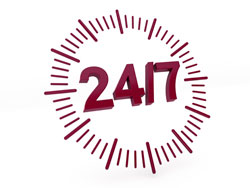5 Benefits of Inpatient Treatment Centers
Inpatient treatment centers offer people the greatest and most effective environments for people to conquer their drug or alcohol addictions.
An inpatient treatment center means that an individual will be living at the treatment center for a period of time to detoxify from their addiction. By doing this they will have access to a multitude of support and methods to help them achieve their goal.
Five Benefits of Inpatient Treatment Centers
1. The first benefit of an inpatient treatment center is the twenty-four-seven access to help if a person needs it. A person suffering from withdrawals and insomnia may not be able to sleep at night, or may be in pain at various hours throughout the day. When living in a treatment center a person has, at their time of need, professional staff available to help them and provide them with resources to help them get through the rough times.
2. The second benefit is the access to detoxification methods. Treatment centers know how to wean a person of off an additive substance in a healthy and medically supervised manner, so that a person will go through limited withdrawals instead of being bombarded with a multitude of withdrawal symptoms all at once. This is an important method of detoxification and having an experienced medical team there to a help a person detox is important.

One major benefit of inpatient treatment centers is the around the clock care you will receive.
3. The third benefit of an inpatient treatment center is the team of professionals who will be assigned to an individual to help them with their addiction. All treatment centers do not provide the same services but most of them will provide a person with a therapist, a doctor, an activities instructor, and a dietician. This team of professionals provides services daily for the struggling individual and will provide them with knowledge and activities to help them conquer their addiction.
4. The fourth benefit is the understanding and lack of judgment at a treatment center. It is embarrassing for some people to admit that they have an addiction, but at a treatment center every patient there has an addiction and an individual will be surrounded by other people that understand what they are going through. Having other people around that are going through the same process provides a person with the ability to feel welcomed and understood and can help them to talk more openly to others about their feelings and struggles.
5. The fifth benefit of an inpatient treatment center is the all-around support. Support has been proven to help people overcome their addictions and is a very important element for a person to have from others. Individuals at a treatment center will have support from their professional teams as well as the other patients in the treatment center. This amount of support and understanding is not easy for people to find and it will help a person feel strong and secure and will provide a person with the strength to keep pushing forward.
Drug or alcohol addiction is a serious disease and is commonly seen throughout America. According to www.drugabuse,gov, the total overall costs of substance abuse in America, including productivity and health- and crime-related costs, exceeds $600 billion annually.
Drug and alcohol usage is a growing problem and more and more people need help to overcome their addiction. Going to an inpatient treatment center is one of the best ways for a person to get rid of their disease.
